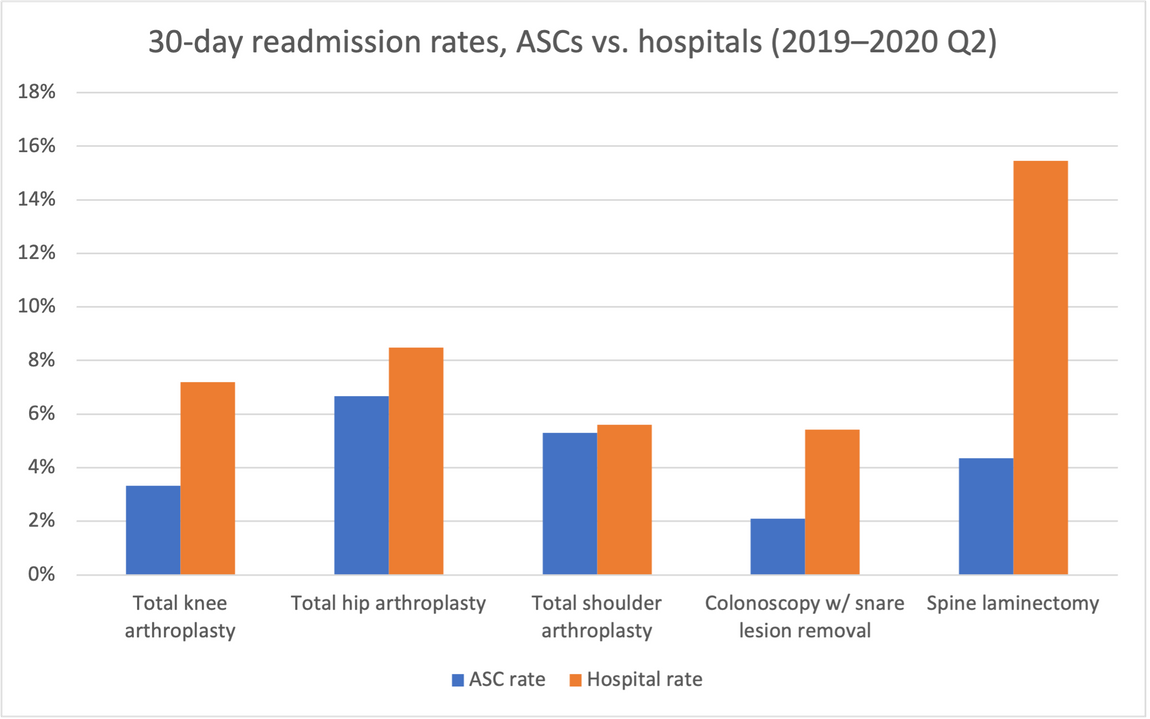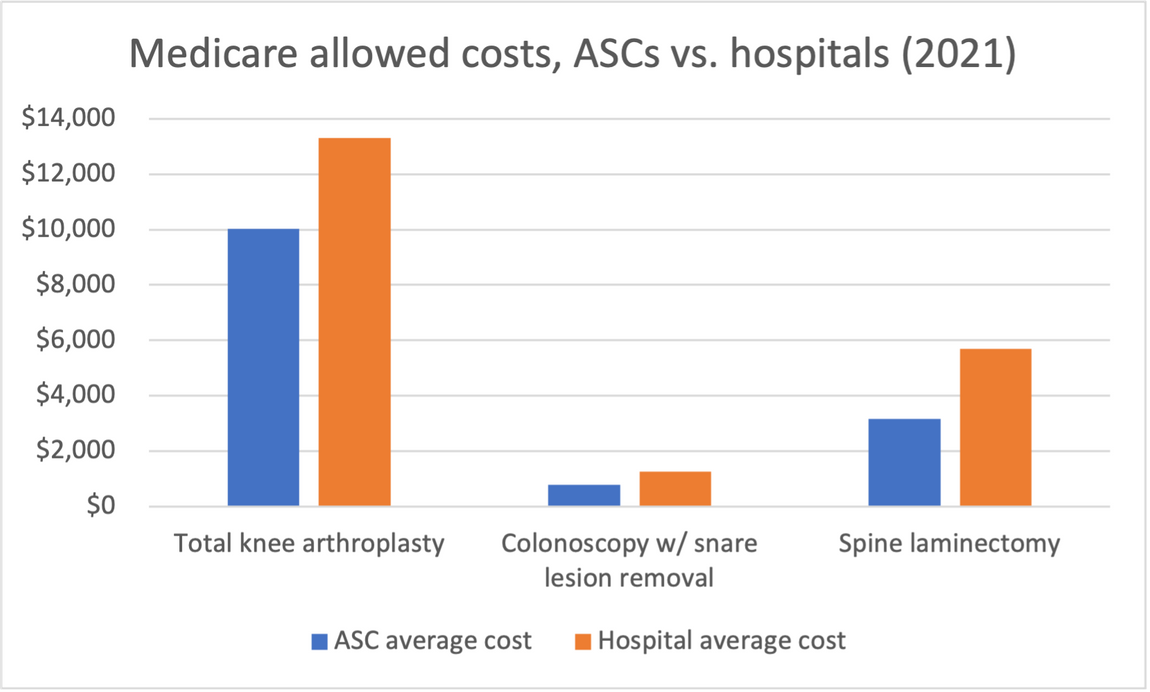Medicare patients face difficulties accessing Orthopaedic ASC-based care
ASCs offer patients high-quality medical care that is typically more flexible and cost-effective than hospital-based care. Comparing readmission rates demonstrates that ASC-based care has a lower rate of patient readmission than hospital-based care across a broad set of procedures. One factor behind this trend may be that the specialized, individualized care provided by ASCs leads to better health outcomes than hospital-based care in general. Many academic studies comparing the two care settings for the same procedures have yielded similar results: ASC-based care leads to similar, if not lower, readmission rates than hospitals. This trend is likely due, in part, to better patient outcomes as a result of the individualized, specialized care that ASCs can uniquely provide.

Patients undergoing spine procedures, such as the spine laminectomy, see far lower readmission rates in ASCs than their counterparts in hospitals. Though ASCs currently make up a relatively small part of the total spine surgery market, their lower cost and proven safety record in this specialty could make them a very attractive alternative to hospitals in the long run.
ASCs are more cost-effective than hospitals
Across the board, ASCs offer more cost-effective surgeries than hospitals without compromising the high quality of care. With lower overhead costs and much more flexibility than a traditional hospital, ASCs are able to offer competitive rates that yield significant savings for both patients and insurers.
Looking at several procedures mention above, the national average cost determined by Medicare is far lower in ASCs than hospitals. On average, a colonoscopy with a snare lesion removal and a spine laminectomy are each over 40% less expensive in an ASC setting.

As joint replacement volumes in ASCs continue to grow in the coming years, the cost savings to patients and insurers like Medicare could be billions of dollars. One study found that "U.S. healthcare costs are reduced by more than $38 billion per year due to the availability of ambulatory surgery centers." Increasing ASC accessibility in rural areas and continuing the rapid migration of orthopedic procedures away from hospital settings could lead to even greater patient savings, improved outcomes, and more convenience for patients in the future.